Local SEO is a powerful strategy for businesses looking to attract customers within a specific geographic area. It involves optimizing various online elements to improve visibility in local search results. But is a website necessary for effective Local SEO? Let us explore whether you can successfully implement Local SEO without a website and what alternative strategies you can use to reach local customers.
Understanding the Role of a Website in Local SEO
A website plays a significant role in traditional Local SEO strategies. It serves as the digital home for your local business, allowing you to control and optimize content for search engines. A well-structured website with relevant local content can significantly improve your search visibility, helping your business rank higher in local search results.
Additionally, a website enhances credibility. Potential customers often visit a business’s website to gather information, read reviews, and make informed decisions. Without a website, you may miss opportunities to engage with your audience and establish trust.
Maximize your local SEO impact—start by building a website today!
Alternative Strategies for Local SEO Without a Website
While having a website is advantageous, it’s not the only way to achieve local search visibility. Here are some effective strategies to optimize your Local SEO without a website.
Google My Business (GMB) Optimization
Google My Business (GMB) is a powerful tool for local visibility, especially if you don’t have a website. GMB allows you to manage how your business appears on Google Search and Maps, making it essential for Local search engine optimization.
- Importance of GMB for Local Visibility: A well-optimized GMB profile increases your chances of appearing in local search results, particularly in the local pack. This section highlights local businesses at the top of search results.
- Tips for Optimizing Your GMB Profile:
- Accurate Information: Ensure that your business name, address, phone number (NAP), and operating hours are correct and up-to-date.
- Photos: Add high-quality photos of your business, products, or services to attract potential customers.
- Updates: Regularly update your GMB profile with posts about offers, local events, or local news to keep your audience engaged.
Local Citations and Online Directories
Local citations refer to any online mention of your business’s NAP. Local listings in online directories like Yelp, Yellow Pages, and industry-specific sites are crucial for Local SEO.
- Business Listing in Local Directories: Ensure that your business is listed in popular local directories to increase your online visibility. Many customers use these platforms to find local businesses, making them essential for reaching your target audience.
- Ensuring NAP Consistency Across Platforms: Consistency is key in Local SEO services. Make sure that your NAP information is identical across all directories and platforms to avoid confusion and improve your local search rankings.
Social Media Presence
Social media platforms like Facebook, Instagram, and Twitter can be valuable tools for local outreach, even without a website.
- Leveraging Social Media Platforms for Local Reach: Use social media to connect with your local audience by sharing engaging content, promotions, and updates. Social media profiles often appear in search results, increasing your visibility.
- Using Location-Based Features and Hashtags: Utilize location tags, geotags, and local hashtags to reach users in your area. This helps you attract local customers who are searching for businesses like yours.
Online Reviews and Reputation Management
Online reviews are a critical component of Local SEO. They influence customer decisions and impact your local search rankings.
- Encouraging and Responding to Customer Reviews: Actively encourage satisfied customers to leave positive reviews on platforms like Google and Yelp. Respond to reviews—both positive and negative—to show that you value customer feedback and are committed to providing excellent service.
- Importance of Building a Positive Online Reputation: A strong online reputation can drive more customers to your business, even without a website. Positive reviews and high ratings build trust and encourage more people to choose your business.
Explore alternative Local SEO strategies today!
Limitations of Local SEO Without a Website
Restricted Content Control and Flexibility
One of the primary limitations of doing Local SEO without a website is the restricted ability to create and optimize content for local searches. A website allows you to tailor content specifically to your local audience, using localized keywords and creating targeted landing pages. Without a website, your ability to influence what appears in search results is limited.
Moreover, a dedicated website helps establish authority and trust. Customers often look for a business’s website to learn more about its services, read testimonials, or verify its legitimacy. Without a website, you may struggle to build the same level of credibility, which can impact your ability to attract and retain customers.
Potential Missed Opportunities
Another significant drawback of Local SEO without a website is the potential for missed opportunities, particularly in capturing detailed customer data and insights. A website provides valuable analytics that allows you to track visitor behavior, understand customer preferences, and make data-driven decisions. Without this information, it’s challenging to refine your Local SEO strategy and improve your results.
Additionally, not having a website means you may miss out on opportunities for content marketing and lead generation. Content marketing, such as blogs, videos, and case studies, is a powerful way to engage with your audience and drive traffic to your business. Without a website to host this content, your ability to attract and convert leads is limited.
Unlock the full potential of local SEO with a professional website. Get started!
When to Consider Building a Website
Scaling Your Local SEO Efforts
If you’re looking to scale your Local SEO efforts and achieve long-term growth, building a website is a strategic move. A website complements and enhances your Local SEO strategy by providing a central hub for all your online activities. It allows you to integrate various Local SEO tactics, such as on-page optimization, local keyword targeting, and content creation, into a cohesive and effective strategy.
A website also provides a platform for showcasing customer reviews, case studies, and testimonials, which can further enhance your credibility and trustworthiness. As your business grows, a website gives you the flexibility to expand your content, target new keywords, and attract a broader audience.
Cost and Time Considerations
When considering whether to build a website, it’s important to weigh the cost and time investment against the potential business growth. While building and maintaining a website requires an upfront investment, the long-term benefits often outweigh the costs. A website can drive more traffic, generate more leads, and ultimately increase your revenue.
For businesses with limited resources, starting with a simple, well-optimized website may be a cost-effective way to enhance your Local SEO efforts. Over time, as your business grows, you can invest in expanding and improving your website to further support your Local SEO strategy.
Take your local visibility to the next level—get started now! Contact Us or 2138949220!
While it’s entirely possible to engage in Local SEO without a website, there are notable limitations that could impact your overall success. A website offers significant advantages, including greater control over content, improved credibility, and the ability to leverage data for better decision-making. As you assess the needs of your business, consider the long-term benefits of having a website. It could be a crucial investment in scaling your Local SEO efforts and achieving sustained growth in your local community.
Read Our Blogs
How to Rank in ChatGPT

written by Jimmy Huh
1:29 pm
The Role of Site Speed and Performance in SEO Services for Local Businesses

written by Jimmy Huh
9:15 am
Technical SEO Checklist: How to Optimize Your Website for Better Rankings

written by Jimmy Huh
7:14 am
Why SEO Services Are Critical for Long-Term Success Beyond Google Ads

written by Jimmy Huh
6:58 am
How Google Ads and SEO Services Work Together to Maximize ROI
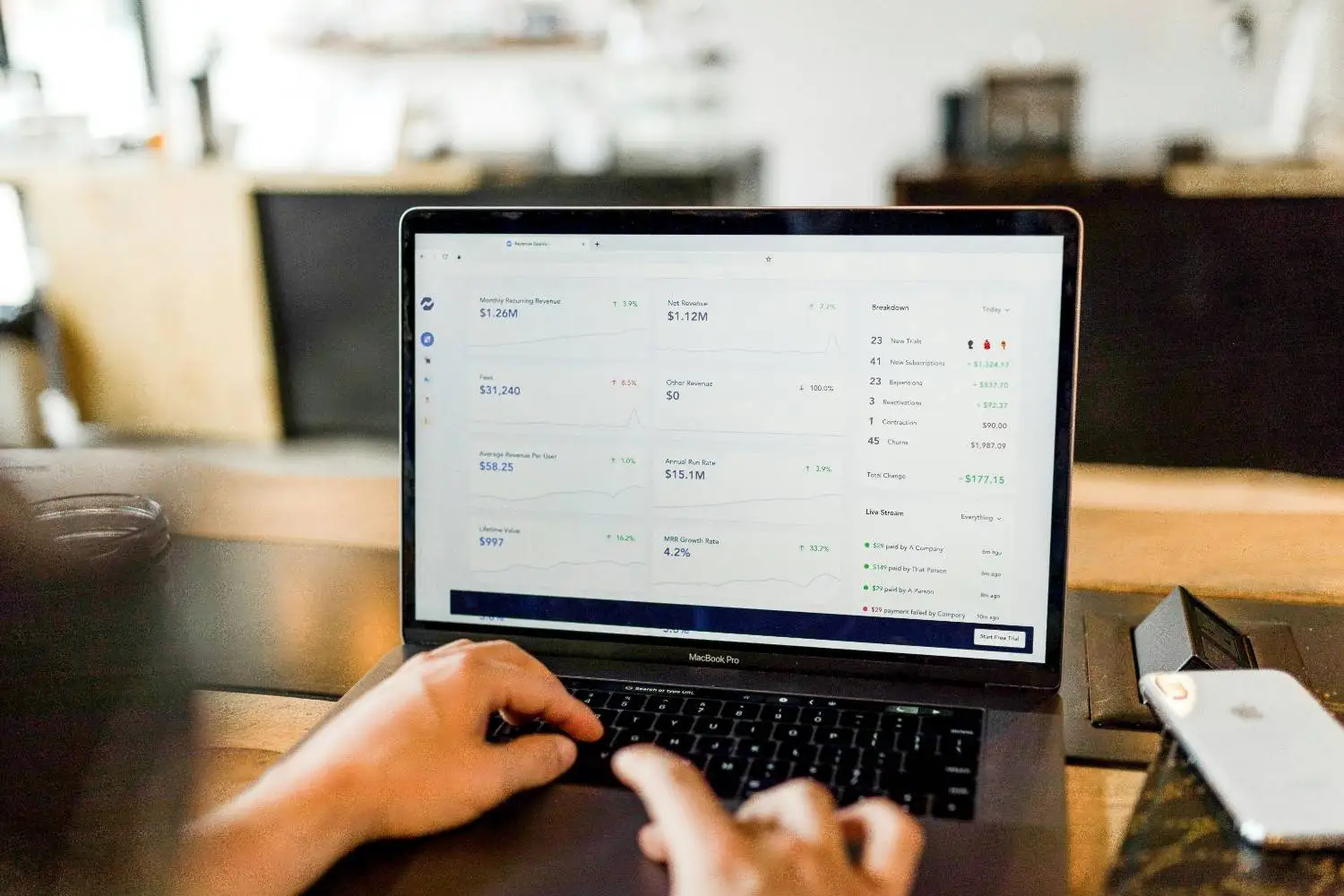
written by Jimmy Huh
5:18 am
Best Practices for Creating a User-Friendly Franchise Website for SEO

written by Jimmy Huh
3:26 am
How Mobile Optimization Impacts SEO for Franchise Websites

written by Jimmy Huh
11:41 am
How Hyperlocal SEO Can Boost Individual Franchise Location Rankings

written by Jimmy Huh
11:20 am
How Franchise SEO Services Improve Local Visibility and Customer Retention

written by Jimmy Huh
9:12 am
Best SEO Practices for Small Businesses Competing in Los Angeles

written by Jimmy Huh
8:50 am
How Local SEO Services Can Help LA-Based Businesses Gain More Foot Traffic

written by Jimmy Huh
7:18 am
SEO Strategies for New York’s Financial District: How to Attract High-Value Clients

written by Jimmy Huh
4:47 am
Why E-Commerce Businesses in New York Need Expert SEO Services

written by Jimmy Huh
10:18 am
Why Local SEO Services Are Essential for San Francisco Restaurants & Retailers

written by Jimmy Huh
8:43 am
San Francisco SEO Trends: How Local Businesses Can Stay Ahead in 2025

written by Jimmy Huh
7:31 am
How to Rank Higher in San Francisco’s Competitive Search Market

written by Jimmy Huh
8:51 am
E-Commerce SEO Tips for Businesses Serving the San Francisco Market

written by Jimmy Huh
6:45 am
Track Your SEO Success and Improve Rankings in New York

written by Jimmy Huh
4:39 am
How to Optimize Your Website for San Francisco Neighborhoods

written by Jimmy Huh
6:14 am
Top SEO Strategies for Small Businesses in San Francisco

written by Jimmy Huh
4:46 am
Optimize Your Site for New York’s Mobile-First SEO Demands

written by Jimmy Huh
12:00 pm
Create SEO Content That Resonates with New York Audiences

written by Jimmy Huh
4:43 am
Maximizing Your Website’s Potential with Los Angeles SEO Services

written by Jimmy Huh
10:52 am
The Role of Local SEO in Enhancing Your Brand Visibility in Los Angeles

written by Jimmy Huh
5:34 am
Increasing Revenue Through SEO: A Los Angeles Perspective

written by Jimmy Huh
3:50 am
Boost Your New York Business with Local New York SEO
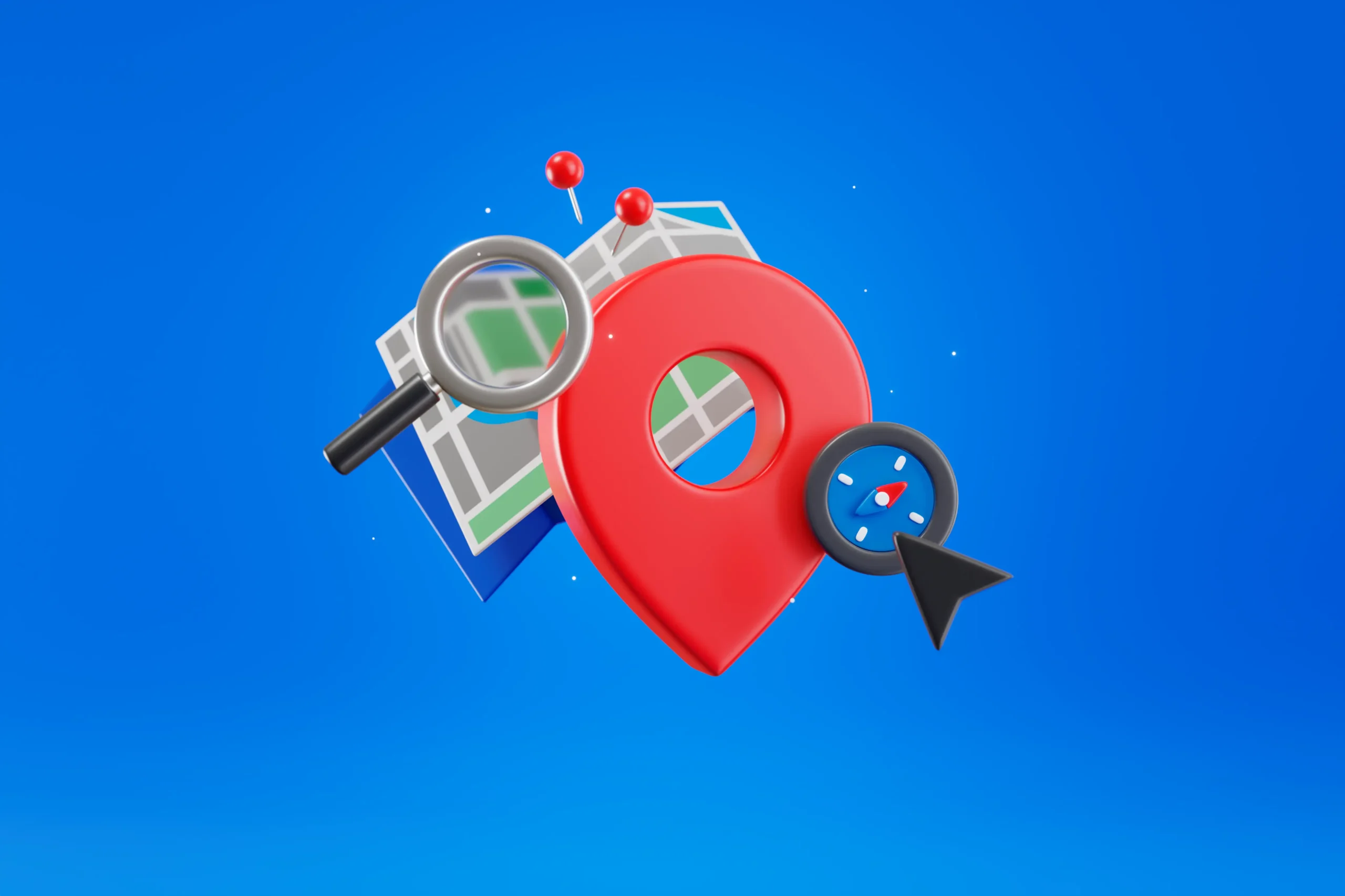
written by Jimmy Huh
10:29 am
Local SEO in Los Angeles: Get Noticed by Your Target Audience

written by Jimmy Huh
10:45 am
The Ultimate Guide to Managing Online Reviews for Franchise SEO Success

written by Jimmy Huh
9:59 am
How to Handle Duplicate Content in Franchise SEO: Best Practices for Unique Pages

written by Jimmy Huh
6:40 am
The Role of Schema Markup in Franchise SEO: Boosting Search Engine Visibility

written by Jimmy Huh
11:24 am
Creating a Unified SEO Strategy for Franchise Websites: Balancing Corporate and Local Needs

written by Jimmy Huh
12:40 pm
Mastering Multi-Location SEO: How Franchises Can Dominate Local Search

written by Jimmy Huh
6:49 am
The Role of Social Media in Med Spa SEO: Driving Traffic and Building Authority

written by Jimmy Huh
6:21 am
How to Optimize Before-and-After Galleries for SEO in the Med Spa Industry

written by Jimmy Huh
10:20 am
Content Marketing for Med Spas: Blogs, Videos, and Infographics that Drive Traffic

written by Jimmy Huh
8:25 am
Local SEO for Med Spas: How to Attract Clients in Your Area

written by Jimmy Huh
10:01 am
Optimizing Med Spa Websites for Search Engines: A Complete SEO Playbook

written by Jimmy Huh
10:45 am
SEO for International E-commerce: Strategies for Global Reach

written by Jimmy Huh
6:19 am
How to Leverage User-Generated Content for E-commerce SEO

written by Jimmy Huh
12:00 pm
E-commerce Technical SEO: Fixing Common Issues that Impact Rankings

written by Jimmy Huh
11:02 am
The Art of Link Building for E-commerce Sites: Strategies to Boost Domain Authority

written by Jimmy Huh
9:50 am
E-commerce SEO Fundamentals: How to Optimize Product and Category Pages

written by Jimmy Huh
7:13 am
Grow Your Search Revenue With Los Angeles SEO

written by Jimmy Huh
11:09 am
Professional SEO Experts In Los Angeles

written by Jimmy Huh
1:25 pm
Understanding The Competitive Landscape Of Los Angeles SEO

written by Jimmy Huh
9:26 am
How Los Angeles Businesses Are Using Content Marketing To Boost SEO

written by Jimmy Huh
11:07 am
Ranking Your Business On Google With New York SEO Expert

written by Jimmy Huh
12:37 pm
Why Does Your New York Business Need Professional SEO Services?

written by Jimmy Huh
12:13 pm
Adapting To New York’s Unique Market Dynamics With SEO

written by Jimmy Huh
11:31 am
How New York’s Changing Digital Landscape Is Shaping Local SEO

written by Jimmy Huh
10:18 am
Optimizing Franchise Locations For Local Search With Franchise SEO

written by Jimmy Huh
8:59 am
Top SEO Tools Every Franchise Owner Needs To Know

written by Jimmy Huh
6:34 am
Local SEO Vs. National SEO: What’s Right For Your Franchise?

written by Jimmy Huh
5:18 am
5 Ways SEO Can Boost Each Franchise Location’s Visibility

written by Jimmy Huh
9:12 am
SEO Success Secrets For Med Spas, Dermatologists, Plastic Surgeons

written by Jimmy Huh
9:58 am
Boosting Client Trust Online With Med Spa SEO

written by Jimmy Huh
6:46 am
How Med Spa SEO Can Make Your Business Stand Out In A Competitive Market

written by Jimmy Huh
5:34 am
Med Spa SEO Tips To Get More Bookings For Your Med Spa

written by Jimmy Huh
10:29 am
Enhancing Business Visibility in Los Angeles: The Role of SEO in Local Marketing

written by Jimmy Huh
10:14 pm
How Los Angeles SEO Services Can Elevate Your Google Rankings

written by Jimmy Huh
9:20 pm
Content Marketing Strategies for Effective Los Angeles SEO

written by Jimmy Huh
8:14 pm
Empowering your Brand with Los Angeles SEO Company

written by Jimmy Huh
7:19 pm
Crafting Compelling Content: The Key to New York SEO Success

written by Jimmy Huh
4:41 pm
Effective New York SEO: Rank High In Web Searches

written by Jimmy Huh
9:52 pm
Why Local Listings Are Crucial for New York SEO Success

written by Jimmy Huh
8:14 pm
How to Boost Local Visibility with New York SEO Strategies

written by Jimmy Huh
6:50 pm
How Link Building Can Boost Your Franchise’s SEO Efforts

written by Jimmy Huh
5:03 pm
Maximizing Franchise SEO Through Consistent Branding Across Locations

written by Jimmy Huh
3:42 pm
Franchise SEO Optimization: Boosting Local Search Rankings

written by Jimmy Huh
12:40 pm
The Importance of Google Business Profile Optimization for Franchise SEO

written by Jimmy Huh
10:35 am
A Guide to Building Organic Traffic to Med Spa SEO

written by Jimmy Huh
11:51 am
The Impact of Mobile Optimization on Med Spa SEO and User Experience

written by Jimmy Huh
11:23 am
Why Content Marketing is Key to Successful Med Spa SEO

written by Jimmy Huh
10:43 am
How Content Creation Enhances Your Med Spa’s SEO Performance

written by Jimmy Huh
9:24 am
The Impact of SEO on Small Business Success

written by Jimmy Huh
8:09 am
How to Optimize Your Small Business Website for Voice Search

written by Jimmy Huh
7:08 am
The Importance of Backlinks for Small Business SEO and How to Get Them

written by Jimmy Huh
6:43 am
Creating SEO-Friendly Content for Small Business Blogs

written by Jimmy Huh
6:21 am
How Effective SEO Strategies Can Transform Your Small Business

written by Jimmy Huh
6:03 am
How to Leverage Customer Reviews for Better Local SEO in the Fitness Industry

written by Jimmy Huh
5:43 am
Mobile Optimization for Local SEO: Why It Matters and How to Get It Right

written by Jimmy Huh
5:31 am
The Importance of Local Citations: What They Are and How to Build Them

written by Jimmy Huh
5:09 am
Technical SEO Checklist for Ecommerce Websites: What to Fix First

written by Jimmy Huh
12:16 pm
Driving Ecommerce Growth on Amazon: Essential SEO Strategies

written by Jimmy Huh
11:49 am
How to Boost Ecommerce Growth on Shopify with SEO Best Practices

written by Jimmy Huh
11:27 am
The Role of SEO in Driving Long-Term Ecommerce Growth

written by Jimmy Huh
11:00 am
SEO Strategies for Scaling Your Ecommerce Store and Boosting Sales

written by Jimmy Huh
10:38 am
Boost Your Medspa’s Client Bookings with Effective Local SEO

written by Jimmy Huh
8:48 am
How to Create an Effective Local SEO Strategy for Increased Local Visibility

written by Jimmy Huh
7:16 am
What Is Local SEO for Small Businesses?

written by Jimmy Huh
10:09 am
How Do I Boost My Small Business SEO?

written by Jimmy Huh
9:38 am
How Do I SEO for a Small Business Website?

written by Jimmy Huh
8:52 am
Does SEO Work for Small Businesses?

written by Jimmy Huh
8:18 am
How Do I Create an SEO for My Business?

written by Jimmy Huh
7:25 am
What Are the Benefits of Ecommerce SEO?

written by Jimmy Huh
6:44 am
What Is the Role of SEO in Ecommerce?

written by Jimmy Huh
6:15 am
How Ecommerce SEO Is Different From Normal SEO?

written by Jimmy Huh
5:51 am
What Are the Best Tools for Ecommerce SEO?

written by Jimmy Huh
5:07 am
Is SEO Worth It for Ecommerce?

written by Jimmy Huh
11:32 am
What Is the Best Strategy for Local SEO?

written by Jimmy Huh
10:49 am
Is Local SEO Profitable?

written by Jimmy Huh
9:08 am
What Is Local SEO vs SEO?

written by Jimmy Huh
7:45 am
What Is the Process of Local SEO?

written by Jimmy Huh
5:44 am
What is Small Business SEO

written by Jimmy Huh
11:28 am
What to Ask Small Business SEO Agencies

written by Jimmy Huh
9:41 am
How to Do SEO for Small Business

written by Jimmy Huh
9:18 am
Which SEO Company is Best for Small Business

written by Jimmy Huh
7:58 am
How to Select the Best SEO Company for Small Business

written by Jimmy Huh
5:46 am
How To Optimize An Ecommerce Product Page For SEO

written by Jimmy Huh
11:25 am
How To Write Seo Content for Your Ecommerce Site

written by Jimmy Huh
9:51 am
How To Do Local SEO Marketing

written by Jimmy Huh
8:38 am
What Is Google Local SEO

written by Jimmy Huh
6:58 am
What Are Local SEO Services

written by Jimmy Huh
5:17 am
How Does Local SEO Work

written by Jimmy Huh
10:05 am
Why Local SEO Is Important

written by Jimmy Huh
9:21 am
Why Local SEO is Important for Small Businesses

written by Jimmy Huh
12:00 pm
Mistakes Small Business Owners Make When Using SEO

written by Jimmy Huh
11:11 am
How to Improve SEO for Small Businesses

written by Jimmy Huh
10:26 am
Why SEO is Important for Small Businesses

written by Jimmy Huh
9:24 am
How Much Does SEO Cost For A Small Business

written by Jimmy Huh
6:25 am
What is Local SEO Marketing

written by Jimmy Huh
6:53 am
How To Do SEO For Ecommerce Website

written by Jimmy Huh
5:22 am
Which eCommerce Platform is Best for SEO?

written by Jimmy Huh
10:48 am
How to Improve SEO of Ecommerce Website

written by Jimmy Huh
6:58 am
Why SEO is Important for Ecommerce

written by Jimmy Huh
6:20 am
What is Ecommerce SEO?

written by Jimmy Huh
4:53 am
How To Improve Local SEO

written by Jimmy Huh
10:57 am
What is Local SEO?

written by Jimmy Huh
6:07 am
How to Improve Your Paving Company’s SEO in 2024

written by Jimmy Huh
8:53 am
How to Choose a Reputable Paving Company SEO Company

written by Jimmy Huh
7:04 am
Understanding the Cost of SEO for Paving Companies

written by Jimmy Huh
5:48 am
How to Improve Gym SEO: A Comprehensive Guide for Fitness Centers

written by Jimmy Huh
4:59 am
How to Choose a Gym SEO Company & Find a Reputable One

written by Jimmy Huh
12:07 pm
How Much Does Gym SEO Cost?

written by Jimmy Huh
11:06 am
How to Improve Plastic Surgery SEO

written by Jimmy Huh
10:12 am
Why SEO is Essential for Los Angeles Businesses

written by Jimmy Huh
9:37 am
How to Choose a Reputable Plastic Surgery SEO Company

written by Jimmy Huh
9:35 am
Understanding the Cost of SEO for Plastic Surgery Practices

written by Jimmy Huh
8:47 am
How to Improve SPA SEO: A Comprehensive Guide

written by Jimmy Huh
6:39 am
How to Choose a Spa SEO Company: The Ultimate Guide for Medical Spas

written by Jimmy Huh
5:51 am
Understanding the Cost of SEO for Your Spa Business

written by Jimmy Huh
4:45 am
How to Improve Dental SEO: A Comprehensive Guide for Dentists

written by Jimmy Huh
11:37 am
How to Choose a Reputable Dental SEO Company

written by Jimmy Huh
11:05 am
Understanding Dental SEO Investment for Dentists

written by Jimmy Huh
9:37 am
What Is SEO Analysis?

written by Jimmy Huh
6:11 am
How to Add SEO Keywords in Website?

written by Jimmy Huh
4:42 am
What Is A SEO Tracker?

written by Jimmy Huh
11:51 am
What is SEO-Rich Text?

written by Jimmy Huh
10:07 am
How User Experience Affects SEO

written by Jimmy Huh
9:24 am
What is Cloaking in SEO?

written by Jimmy Huh
8:41 am
What Is White Label SEO?
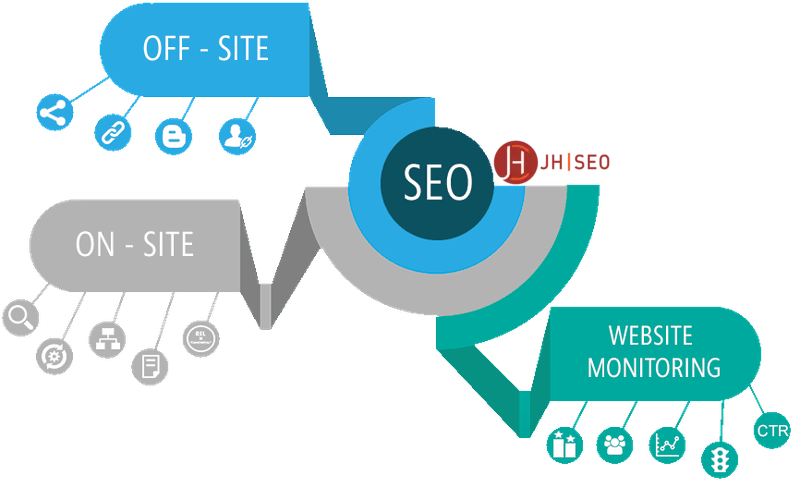
written by Jimmy Huh
6:56 am
Unraveling the Mystery of SEO When Changing Domain Name

written by Jimmy Huh
5:30 am
What Is SEO Management?

written by Jimmy Huh
11:37 am
How Many SEO Keywords Should I Use?

written by Jimmy Huh
10:06 am
What Is An SEO Manager?

written by Jimmy Huh
7:16 am
What Does SEO Stand For

written by Jimmy Huh
10:09 am
Why Video SEO New York: The Importance of Investing In Good Video SEO

written by Jimmy Huh
10:53 am
Why SEO is Important for Business in NYC

written by Jimmy Huh
11:51 am
What is the best New York SEO company

written by Jimmy Huh
9:59 am
What Is SEO
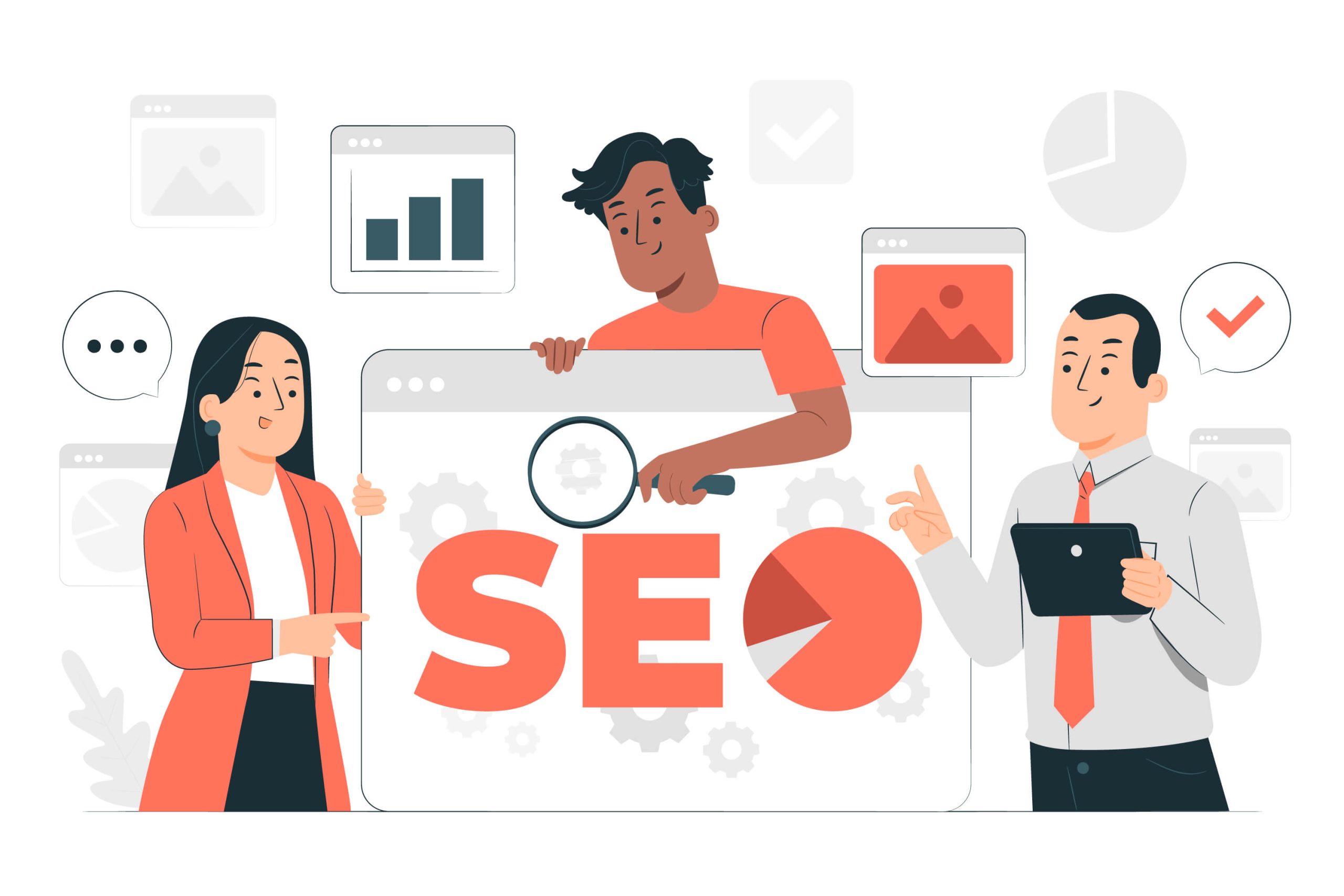
written by Jimmy Huh
6:34 am
How To Do SEO

written by Jimmy Huh
11:44 am
Unlocking the Power of SEO Marketing: What is SEO Marketing?
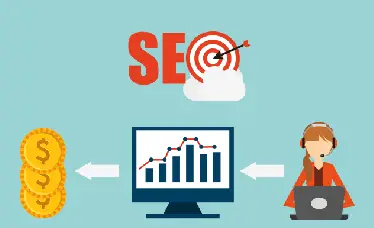
written by Jimmy Huh
11:40 am
How Long Does SEO Take for Lawyer Websites

written by Jimmy Huh
11:38 am
SEO Terms for Beginners

written by Jimmy Huh
10:58 am
What is Schema Markup and How Can It Help My Personal Injury Law Firm’s Website?

written by Jimmy Huh
10:01 am
SEO Ranking Factors for Lawyers

written by Jimmy Huh
8:43 am
The Cost of SEO for Lawyers: 6 Factors to Know

written by Jimmy Huh
5:18 am
How to Use HARO for Backlinks & Publicity

written by Jimmy Huh
7:23 am
Looking for a gym marketing agency to grow Your business?

written by Jimmy Huh
9:21 am
How to market a plastic surgery clinic?

written by Jimmy Huh
5:08 am
How to Create a Strategy for Local SEO?

written by Jimmy Huh
7:31 am
How to Do Local SEO Audit: How to Improve Your Ranking?
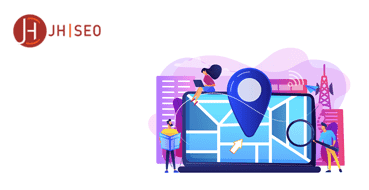
written by Jimmy Huh
5:25 am
How to Do SEO for Google Maps: Ranking Higher on Google Maps
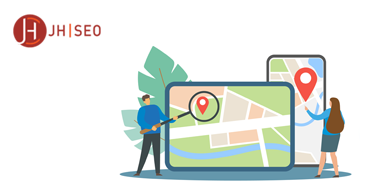
written by Jimmy Huh
2:08 am
New York SEO & Digital Marketing Plan for Local Businesses

written by Jimmy Huh
7:47 am
What is SEO Copywriting? How to Write SEO-Friendly Content

written by Jimmy Huh
7:06 am
How to Improve SEO on Amazon? How to do Amazon SEO

written by Jimmy Huh
6:07 am
How To Market A Gym? 10 Marketing Strategies You Shouldn’t Miss

written by Jimmy Huh
3:16 am
10 Reasons Why Your Business Needs SEO

written by Jimmy Huh
8:10 am
9 Best eCommerce SEO Strategies: Ultimate Guide for Beginners

written by Jimmy Huh
8:13 am
Mastering Facebook Ads for Business Growth

written by Jimmy Huh
7:04 am
10 Reasons Why Your Business Needs SEO in 2022

written by Jimmy Huh
2:17 am
What Is SERP? What Are The Features Of SERPs

written by Jimmy Huh
2:31 am
How to Learn SEO? +25 Free SEO Courses & Guides

written by Jimmy Huh
7:02 am
How Does Google Remarketing Work? Advantages Of Retargeting

written by Jimmy Huh
12:58 am
10 Key Benefits of PPC Advertising for Businesses

written by Jimmy Huh
4:48 am
14 Best SEO Tools That You Actually Need to Boost Your Website

written by Jimmy Huh
7:18 am
The 10 Best WordPress SEO Plugins to Boost Your Website

written by Jimmy Huh
5:20 am
How to improve SEO ranking?13 Tactics to improve SEO in 2022

written by Jimmy Huh
4:57 am
How to Do SEO for a YouTube Video? Tips to Boost Your Video

written by Jimmy Huh
9:36 am
Elevate Your Shopify SEO: Key Tactics for Better Visibility

written by Jimmy Huh
2:50 am
Dofollow Backlinks Vs Nofollow Backlinks: What Is The Difference?

written by Jimmy Huh
5:20 am
SEO vs SEM: What’s the Difference and Which is Better?

written by Jimmy Huh
2:02 am
What Is A Good SEO Score? – How To Check Your SEO Score?

written by Jimmy Huh
2:50 am
Google Algorithm Updates History: Major & Recent Updates

written by Jimmy Huh
2:02 am
The 13 Extremely Important SEO Mistakes You Have to Avoid

written by Jimmy Huh
12:09 pm
What is Long-Tail Keyword in SEO? Benefits of Long-Tail Keywords

written by Jimmy Huh
10:52 am
How to Optimize Blog Posts For SEO? 10 Expert Tips | Jimmy Huh

written by Jimmy Huh
3:27 am
Leverage Press Releases for SEO Boost: A Guide

written by Jimmy Huh
9:40 am
Understanding Anchor Text: Your SEO Game Changer

written by Jimmy Huh
4:12 am
What Is A/B Testing in SEO? | How to Do A/B Split Testing?

written by Jimmy Huh
11:15 am
What’s the Difference Between On-Page vs. Off-Page SEO?

written by Jimmy Huh
3:39 am
Technical SEO Checklist to Boost Your Traffic – JH | SEO

written by Jimmy Huh
4:41 am
What is Local SEO Citation? | How to Optimize Local Citations?

written by Jimmy Huh
11:00 am
How To Do Real Estate Marketing? 15 Real Estate Marketing Ideas

written by Jimmy Huh
5:18 am
Local SEO Checklist: 10 Key Points to Improve Your Local Ranking

written by Jimmy Huh
2:40 am
Off-Page SEO Checklist: 10 Great Strategies to Rank Higher
written by Jimmy Huh
6:45 am
Your Ultimate On-Page SEO Guide

written by Jimmy Huh
1:51 am
10-Step SEO Audit Checklist To Boost Your Ranking in 2022

written by Jimmy Huh
2:45 am
What is a Robots.txt File Used for? Do You Need a Robots.txt File?

written by Jimmy Huh
8:27 am
How important is social media for plastic surgeons?

written by Jimmy Huh
2:02 am
Is SEO In Los Angeles More Competitive

written by Jimmy Huh
1:39 am
How to Find a Good SEO Consultant

written by Jimmy Huh
7:24 am
How to get more traffic to my website?

written by Jimmy Huh
3:05 am
How To Do Local SEO For Your Business in Los Angeles?

written by Jimmy Huh
3:15 am
How To Do Local SEO For Your Business In New York City?

written by Jimmy Huh
1:51 am
What Is User Intent | How To Optimize Your Website Accordingly

written by Jimmy Huh
2:41 am
How to Choose Keywords for SEO

written by Jimmy Huh
5:20 am
Complete SEO Guide for Plastic Surgery Websites

written by Jimmy Huh
1:18 am
Using SEO Keywords in 2022

written by Jimmy Huh
2:46 am
What is Off-Page Optimization in 2022?

written by Jimmy Huh
7:03 am
What is a Meta Tag in 2022?

written by Jimmy Huh
6:04 am
What Is A 301 Redirect in 2022?

written by Jimmy Huh
2:32 am
Adding a User to GMB

written by Jimmy Huh
1:08 am
Best CMS for SEO

written by Jimmy Huh
12:02 am
Google Review

written by Jimmy Huh
1:32 am
Is Local SEO in New York more competitive

written by Jimmy Huh
2:16 am
Master SEO Rankings with These Proven Tools

written by Jimmy Huh
2:06 am
Unlock SEO Success: The Critical Role of Page Speed

written by Jimmy Huh
6:01 am
The Power of Backlinks in SEO Explained

written by Jimmy Huh
3:15 am
2024 SEO Services Explained: Enhancing Your Online Presence

written by Jimmy Huh
1:32 am
How Much Does SEO Cost & How Clients Should Budget in 2020

written by Jimmy Huh
10:58 pm
Top SEO Strategies for Small Businesses in 2024
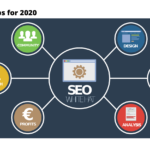
written by Jimmy Huh
10:03 pm


